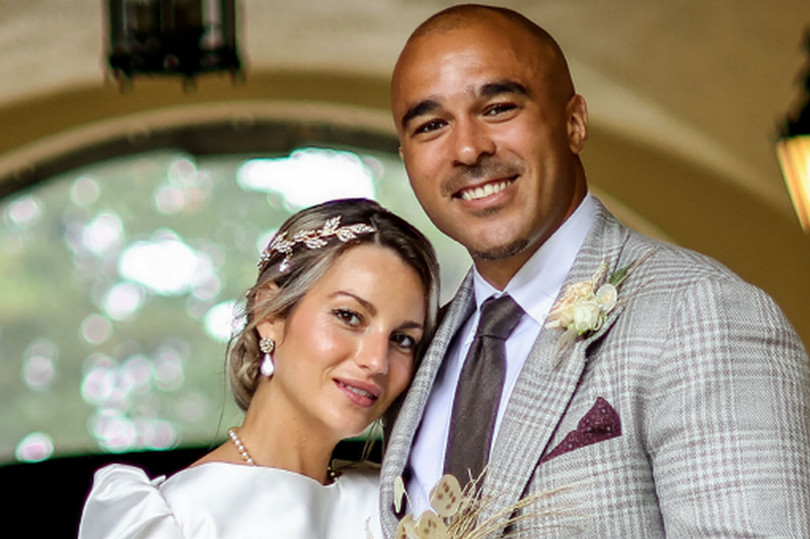Your new TV obsession is officially here. May we introduce you to KAOS, the modern, darkly comedic take on Greek mythology starring Jeff Goldblum as Zeus. Netflix has once again outdone itself. It's epic, hilarious, and oh-so-bingeable.
Jeff Goldblum steals the show as Zeus in darkly comedic Netflix drama Kaos. Created by Charlie Covell (The End of the F***ing World), the show follows the interconnecting tales of three characters who, unknown to them, set a prophecy in motion that is said to dethrone the legendary god. By putting a modern spin on the mythology that sees the gods appear more like affluent celebrities, the show brings plenty of visual flare to the world it’s creating. While the high levels of energy make for a highly entertaining watch, the overall quality is let down by a muddled script, which takes too long to get underway.
The best aspect of Kaos is undoubtedly Goldblum’s performance. Dressed in slick summer outfits and living in a lavish mansion in Olympia, this version of the Greek god is reminiscent of a villain from a Guy Ritchie flick. The actor balances this line between suave and dangerously brilliantly, giving another exceptional Goldblum-esque performance that perfectly fits the tone of the show. Janet McTeer likewise gives a solid performance as Zeus’ wife (and sister), with Aurora Perrineau, Nabhaan Rizwan and Killian Scott rounding out the marvellous cast.
As inventive as this series’ reimagining of the mythology is, especially when it comes to its interpretation of the underworld, an overstuffed script leaves something to be desired. With each of the first three episodes of this eight-part series dedicated to introducing each of the prophecy’s co-conspirators, the main plot is yet to find its footing by the halfway point of the show. Rather, the opening episodes are used more to introduce viewers to different parts of the mythology alongside the various subplots associated with each of the central characters. From the bureaucracy of Hades, The Furies and the Minotaur, there are a lot of truly fascinating takes the mythology thrown into each episode which add to the worldbuilding in interesting ways. The unfortunate drawback is that the plot is brought to a standstill during these opening episodes.
Despite Goldblum’s stellar performance and the unique spin on the mythos making for a compelling premise, the lack of any real plot to speak of at this point makes the first impression of Kaos a bit of a mixed bag.
Last year, one of my child’s English assignments was to rewrite a traditional fairy tale with one major plot difference, to see how the story might play out differently. New Netflix series Kaos feels like its creator, Charlie Covell, was given the same instruction for Greek mythology.
He decided to see what would happen if Zeus was a tasteless, egotistical, paranoid and overly controlling deity, whose best friend (and long-time prisoner), Prometheus, was secretly plotting his downfall.
The show’s blend of humour and drama effectively explores the consequences of such a scenario, while also providing a fresh take on classical mythology. Kaos is perhaps the cleverest retelling I have ever consumed (and not to brag, I have read a staggering number of Hades and Persephone retellings).
Within the first 30 seconds of episode one, Prometheus (Stephen Dillane), Kaos’s narrator, assures the audience that it doesn’t matter if they haven’t heard of him – and this directive rings true for the whole show. If you know nothing about Greek mythology, this should still be an enjoyable and thrilling romp of a story of gods and mortals vying for power and influence over the cosmos.
But if you do know something about Greek mythology, then you may want to set aside time for two separate viewings. One to enjoy the sensorial feast of intrigue, intra-family drama (divine and mortal), love and lust, mortals railing against the gods who control their world, and the gods and goddesses who meddle in their affairs – and another to appreciate the depth and nuance of the Easter eggs that are littered throughout the story and set.
In the first ten minutes, we are introduced to Zeus, king of the gods (Jeff Goldblum), and a mortal called Riddy (Aurora Perrineau), aka Eurydice. One lives with his wife in a kitsch mansion in the sky; the other with her husband, rock star Orpheus (Killian Scott) and Dennis, the black kitten, in a fancy modernist villa in Herakleion, Crete.
Riddy feels an emptiness in her life and relationship, perhaps reinforced by her face’s presence on the posters and billboards of Orpheus’s latest album, Muse. But she is jolted out of her monotonous world through a chance encounter at the supermarket with a woman who prophesies she will leave him that very day.
Then enters Dionysus (Nabhaan Rizwan) – god of pleasure, madness, and wild frenzy – whose sense of emptiness in his party-boy lifestyle is evident. He is, like many wayward youngest children, searching for more. More meaning, more responsibility, more respect – particularly from his father, Zeus.
It’s against this background that Zeus – inviolable, perfect, heavenly Zeus – finds a wrinkle on his forehead and decides this is the beginning of the end, the first stage in the fulfilment of a prophecy that will lead to the destruction of the gods themselves.
In some ways he’s right, in others not, and by the end of the season, you get the distinct impression that this all played out in the exact way it was meant to, according to the Fates.
Beyond the rich and deep storytelling and character development, Kaos is also a delight to watch, with excellent set-dressing choices. Olympus is bright and vibrantly colourful, the mortal world deep and gritty, and the Underworld flat and black and white.
Goldblum is a brilliant Zeus, but the standout performances are the three mortal characters who push, pull, drag and cajole the story forward: Riddy, Ari (Leila Farzad) and Caneus (Misia Butler). It is the interplay between these performances – particularly of Perrineau and Butler – that makes this “dark comedy” distinctly human.
















